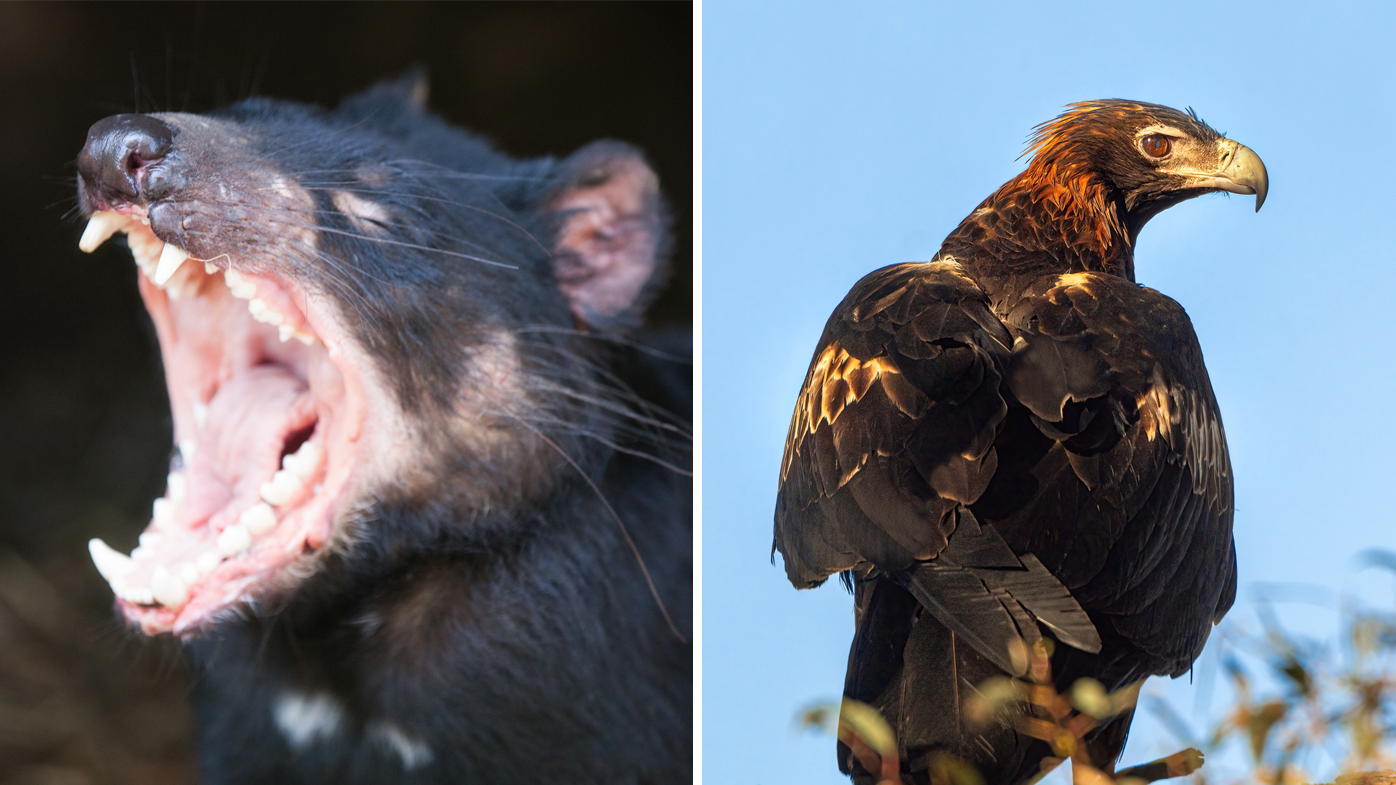
The new H5N1 strain of bird flu spreading around the globe could put the future of Tasmanian devils at risk, Australia’s official chief vet has warned.
The H5N1 strain has reached every continent except Australia, but experts predict it could arrive this spring as birds from the Northern Hemisphere migrate south.
According to Commonwealth Chief Veterinary Officer Beth Cookson, if that strain of bird flu makes its way here, the impact could be “catastrophic,” and even cause localised extinctions.
READ MORE: Nine years on, police finally identify outback body
Scavenging animals and predator birds are known to be at particularly high risk of infection through eating infected birds or animal carcasses.
For the first time, the country’s chief vet told an assembly of government and animal welfare groups that Tasmanian devils and Australia’s eagle population are specifically at risk.
The H5N1 strain has already devastated animal populations in South America.
In 2023, 40 per cent of Peru’s pelicans were killed by avian influenza.
In Argentina, 97 per cent of the country’s elephant seal pups and more than 650,000 native birds died from the strain.
After it reached Antarctica earlier this year, Australia is currently the only continent without the virus.
If it reaches Australia, it could be the last straw for some of Australia’s struggling native species.
READ MORE: Australia war games bird flu fightback as deadly strain looms
“Tassie Devils have been pushed to the brink of extinction by a devastating facial tumour, and are also battling land clearing, mining, logging, and road deaths,” Invasive Species Council Advocacy Director Jack Gough said.
“The introduction of this deadly strain of bird flu could be catastrophic, derailing recovery efforts, reducing genetic diversity and threatening their survival.
“Dead birds can remain a source of infection for weeks and animals that scavenge, like Tassie devils and eagles, or come into close contact with carcasses are at risk of infection and death.”
Tasmanian devil habits like Robbins Island in northwest Tasmania could be affected if migrating birds bring the virus to the island.
Gough also warned that a lack of funding and planning for this outcome was “very concerning”.
“‘There are no detailed plans we are aware of specifically to reduce deaths in Tassie devils, eagles, black swans, sea lions or other species.”
People are urged to avoid contact sick, dead, or dying wild birds, and are urged to report such deaths to the Emergency Animal Disease Hotline on 1800 675 888.
links to content on ABC
9News





